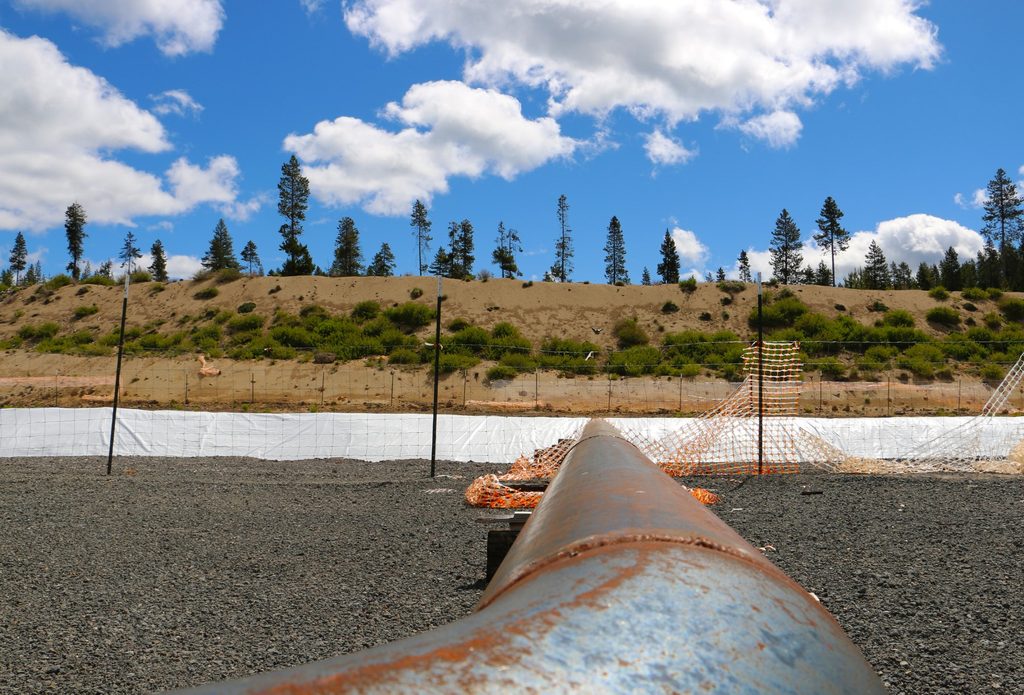Belgium is taking significant strides towards decarbonising its real estate sector, and at the forefront of this green revolution is the emergence of geothermal heating networks.
Wallonia is set to host its inaugural geothermal heating network within the residential project of Belle Vallée in Jodoigne, marking a pivotal moment in the nation's transition to renewable energy.
The venture is a collaboration between renowned developer Matexi and Karno Energy, an expert in carbon-free heat networks, and has already commenced drilling operations. The concept behind geothermal heating is nothing short of revolutionary. By harnessing geothermal energy, thermal energy is extracted from the Earth's subsurface to heat water, providing a sustainable heating solution for buildings, including 140 dwellings in the Belle Vallée project.
The consistent temperature of the ground serves as a reliable, local, and natural energy source, offering the added benefit of cooling homes during scorching summer months. After extraction and temperature adjustment through heat pumps, this energy is distributed through a network of water pipes to every residence, effectively creating a communal heating system.
This groundbreaking system is set to benefit both apartments and houses in the Belle Vallée district, marking a significant milestone as Wallonia's first residential project of its kind. The extensive network of pipes will span nearly one kilometre. Grégory Meys, co-founder of Karno Energy, told Le Soir, "We will not extract energy from the ground per individual dwelling, but will collectively deploy geothermal energy by building a heating network for all dwellings."
'More sustainable and affordable opportunities'
The paramount advantage of geothermal energy, when utilised collectively, is its ability to provide both heating and cooling solutions. Matexi, Belgium's largest developer, recognises the immense potential of this practice within its core business.
Renaud Naiken, Matexi manager for Walloon Brabant, emphasised the importance of district-level solutions in an interview with Le Soir, asserting, "It is increasingly clear that solutions to today's energy and climate challenges lie at the neighbourhood level. It offers many more sustainable and affordable opportunities than individual housing. In a district, green energy can be shared at a reasonable price."
In an effort to showcase the project's environmental impact, both Matexi and Karno Energy presented compelling figures during the inauguration in Jodoigne. If all goes according to plan, the heating and domestic hot water production costs for new households in Belle Vallée will be nearly zero. Furthermore, an astounding 6,552 tons of carbon emissions will be avoided over 20 years, equivalent to nearly 200,000 car trips between Brussels and Liège or 4,000 round trips by airliner between Brussels and New York.
To enhance the project's sustainability, photovoltaic panels will be installed on each house to generate the electricity required for the operation of the heat pumps. Karno Energy will also establish an energy community, promoting local and green energy self-consumption, making the project even more appealing.
Related News
- From sewage to geothermal: Flanders bets big on sustainable heating solutions
- Explained: What support can you receive in Belgium for energy-efficient renovations?
While geothermal energy remains relatively uncommon in Wallonia's energy mix, it is poised for substantial growth in the coming years alongside other renewable energy sources. This strategic shift aligns with the objectives of the Air Climate Energy Plan 2030, committing the Walloon Region to a 55% reduction in greenhouse gas emissions, a doubling of renewable energy sources, improved air quality, and a reduction in energy poverty by 2030.
During the inauguration, Philippe Henry, Walloon Minister of Energy, expressed his enthusiasm for such a project taking root in his territory, emphasising the three vital elements it encompasses: geothermal energy utilization, heating network innovation, and the promise of energy communities. Henry stated, "The only geothermal energy recovered today following the call we launched in December 2022 is a structuring axis of decarbonisation."
The Belle Vallée geothermal heating network project represents a beacon of hope in Belgium's journey towards sustainability, setting an example for similar initiatives in the region and beyond. With its promise of carbon reduction, energy efficiency, and community-focused solutions, geothermal heating networks are paving the way for a greener, more sustainable future in Wallonia and beyond.

